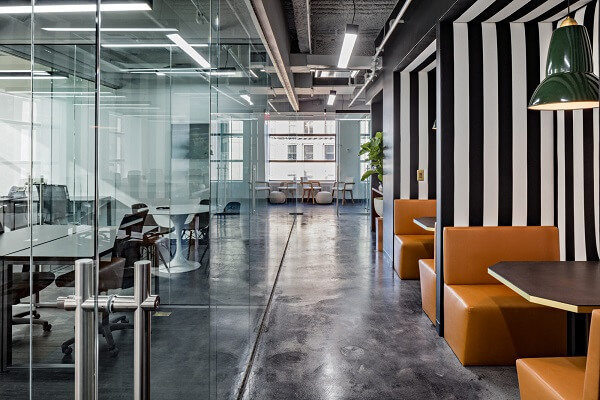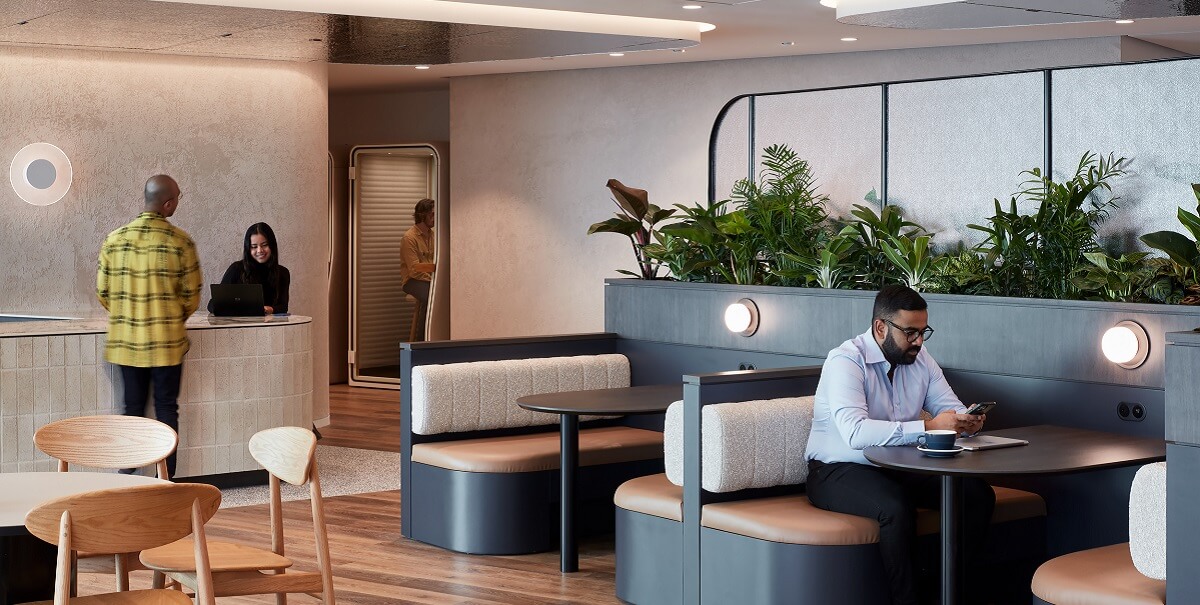Today’s businesses have unique requirements that differ significantly from traditional firms. For instance, many companies desire new types of workspaces that offer more flexibility to suit their preferences. Recently, there has been a surge in serviced office vs coworking space that aim to revolutionize the traditional corporate areas of the past. However, some leaders may need help deciding which option is best suited for their business.
This blog will discuss the differences between serviced offices, coworking spaces, and traditional models.
What is a Serviced Office?
A serviced office is a type of office space managed by a property management company or building manager. These offices are fully furnished and come with general maintenance and janitorial services, which the management company provides. Only one tenant occupies each office space or floor within a serviced office building. For businesses seeking serviced offices, lease terms are usually more flexible than a traditional office building lease.
What is a Coworking Space?
A coworking space is a shared working area where multiple businesses work together. However, companies typically need to reserve space as only one business can occupy one workspace at a time. serviced office vs coworking space can be found in traditional office buildings, but they can also be available in non-traditional office spaces like warehouses. Some coworking spaces have large open areas divided into different sections for various tenants or businesses, while others offer individual rooms designated for one tenant or business at a time.
How Are Private Offices and Coworking Spaces Different From One Another?

How Are Private Offices and Coworking Spaces Different From One Another
Knowing the differences between a private office and a coworking space is important for a business owner to determine the better fit. Here are some of the key differences to consider:
Different Factors Affect the Cost
Private offices are pricier than coworking spaces due to the extra perks like private spaces. In coworking spaces, tenants share maintenance costs and may be responsible for cleaning shared areas. Leasing costs are divided among tenants, leading to lower prices for business owners and management.
Office Space Flexibility & Availability May Differ
Coworking spaces offer more availability and flexibility than private offices because they split and share space between different businesses at different times. Private offices only lease to one business at a time and have lease terms that run by month, day, or hour.
Both Offer Different Business Support Services
Serviced offices offer business support services such as receptionist services, internet access, and mail/package acceptance. Coworking spaces may have limited business support services, but some provide virtual mailbox services and use their physical address as a business address.
Serviced Offices Offer Privacy & Security
A serviced office offers more security and privacy compared to a coworking space. Because serviced office spaces are reserved for only one business at a time, you won’t have to worry about someone else having access to your company’s workspace while not in the office. This can also reduce the potential for theft in the workplace.
Coworking Spaces Offer More Opportunities for Networking
Both private offices and coworking spaces offer networking opportunities, but coworking spaces provide more access to other professionals as the spaces are shared. In addition, coworking spaces offer networking opportunities with businesses in various industries that your company may only sometimes interact with.
Both Have Varying Amenities and facilities
Private offices generally offer more on-site amenities than coworking spaces, which may include fitness centers or cafeterias. However, the availability of amenities may vary by location.
Access Control and Visibility Vary According to the Workspace
Access control is stronger in serviced offices and coworking spaces, but coworking spaces may need to be more secure for leaving sensitive information. Serviced offices are more visible as they are usually located in business districts, while coworking spaces can be found in non-traditional areas.
Both Solutions Present a Professional Image in Different Ways
Creating a professional image is essential for startups to gain customer credibility. Serviced offices and coworking spaces offer businesses the option to use the office building’s address as their business address, providing a professional appearance even without a traditional office lease.
The Benefits Of Coworking Spaces

The Benefits Of Coworking Spaces
Community without politics
Coworking spaces foster collaboration among professionals from diverse backgrounds without the usual competition and office politics. This leads to a thriving experience, with an average rating of six out of seven.
Balanced flexibility and structure
Many coworking spaces offer 24/7 access to their members, allowing them to work at their convenience. This flexibility is extremely beneficial, especially when tight deadlines or meetings with clients in different time zones are scheduled. However, some members prefer to work during regular business hours to benefit from coworking spaces’ sense of structure and shared purpose.
Available Meeting Space
Most, if not all, coworking spaces offer their members the option to reserve meeting or conference rooms as required. This feature provides a significant advantage over working from home or a coffee shop. A conference room projects a more professional image than a corner table in Starbucks.
Serviced Office Vs. Conventional Office
A serviced office is a workspace equipped with all the necessary amenities, making it ready to use. In contrast, traditional office setups require businesses to purchase or rent a space and convert it into a usable workspace. Serviced offices are cost-effective and easily accessible, while conventional offices require significant investments of time and money.
Serviced Office Vs. Traditional Office
Traditional offices often require long-term leases, sizable upfront investments, and ongoing maintenance expenses, whereas serviced offices offer flexible lease terms, allowing businesses to scale up or down according to their needs easily.
Conclusion
Determining whether to select a serviced office or a coworking space is contingent on the objectives you wish to achieve. A serviced office may be a feasible option if you have a small team that requires a customized workspace in an office building. On the other hand, if you are a freelancer or own a startup with a few individuals, a coworking space might be a more fitting choice. The most advantageous aspect of both alternatives is that you can always expand as your business progresses.
FAQS
What is a Serviced Office?
A serviced office is a fully furnished workspace managed by a property management company. It offers flexible lease terms, maintenance services, and privacy for individual businesses.
What is a Coworking Space?
A coworking space is a shared working area where multiple businesses work together. It provides flexible workspace options but typically allows one business to occupy a workspace at a time.
How do Private Offices and Coworking Spaces Differ?
Private offices offer more privacy and security but come at a higher cost. Coworking spaces provide greater flexibility and networking opportunities due to shared spaces.
What Are the Benefits of Coworking Spaces?
Coworking spaces promote collaboration, offer 24/7 access, and provide meeting space reservation options. They create a community without office politics, offering professionals a balanced blend of flexibility and structure.
What Is the Difference Between a Serviced Office and a Traditional Office?
A serviced office is a ready-to-use workspace with all amenities included, offering flexibility and cost-effectiveness. Traditional offices require significant upfront investments, long-term leases, and ongoing maintenance expenses.

